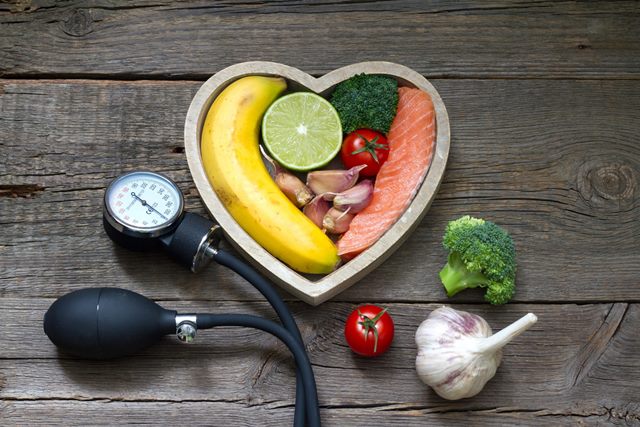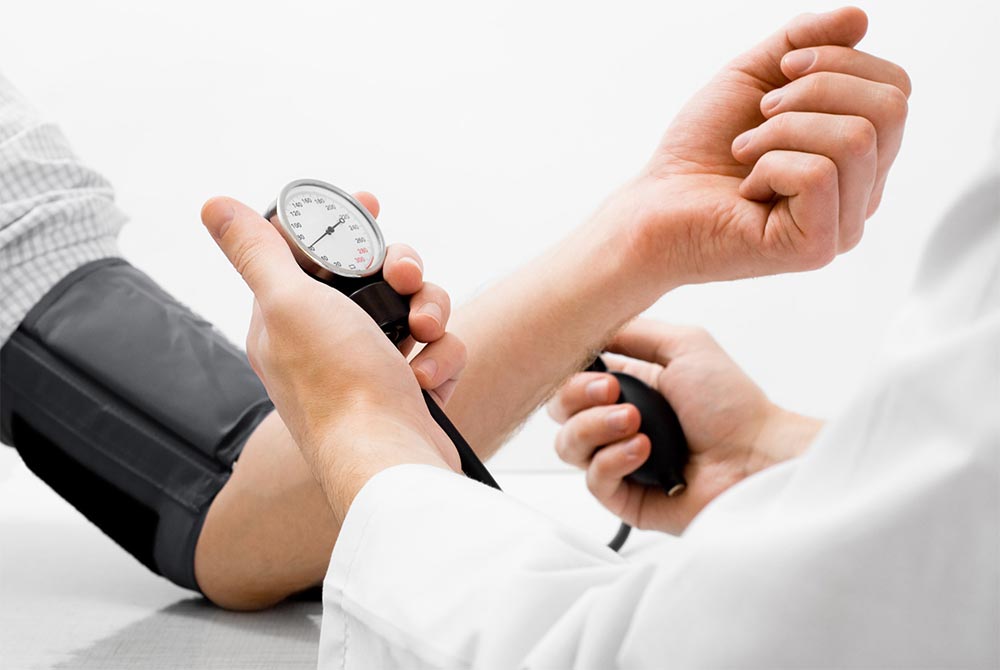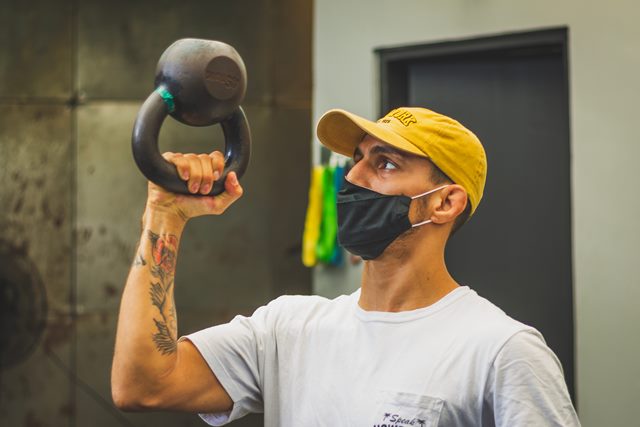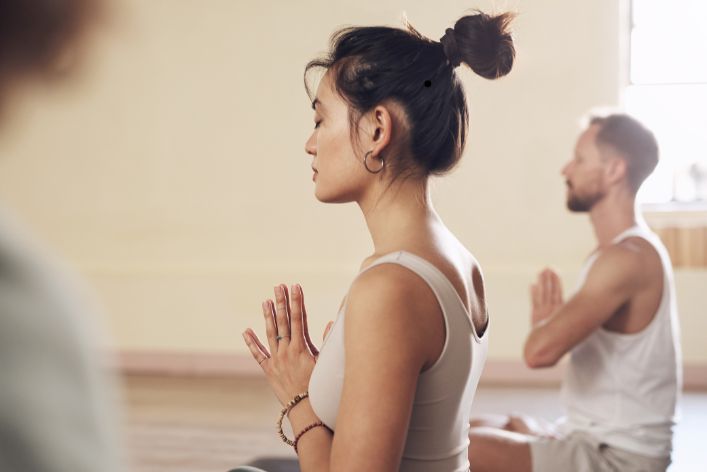Last Updated on May 16, 2023
Do you suffer from high blood pressure? Don’t worry; you’re not alone. Millions of people worldwide are affected by this common health condition. But did you know that there are natural ways to lower your blood pressure without medication?
Yes, you read that right!
By making some simple changes to your daily routine, you can take control of your pressure level and improve your health.
In this guide, we will explore some effective strategies for reducing high blood pressure naturally. So, let’s dive in and discover how you can reduce the chances of hypertension naturally!

What is High Blood Pressure?
High blood pressure, also known as hypertension, is a common health condition that occurs when the force of blood against the walls of your arteries is consistently too high.
When blood pressure is high, the heart has to work harder to pump blood throughout the body. This can lead to damage in the blood vessels and organs over time.
Hypertension is often called a “silent killer” because it typically has no symptoms but can lead to serious health complications such as heart attack, stroke, and kidney failure if left untreated.
Blood pressure is measured using systolic (the top number) and diastolic pressure (the bottom number). A normal blood pressure reading is around 120/80 mm Hg, while high blood pressure is a reading of 130/80 mm Hg or higher.
Read: Dispelling Myths About the Science of Weight Loss

The Importance of Controlling High Blood Pressure
Controlling high blood pressure is crucial for maintaining good health and preventing serious health complications.
When uncontrolled, high blood pressure can damage blood vessels, increase the risk of heart disease, stroke, and kidney failure, and even contribute to dementia.
High blood pressure can also damage the eyes, leading to vision loss over time.
Read: Should You Switch to a Plant-Based Diet for Health Benefits?
Natural Ways to Lower Blood Pressure
While medication is often prescribed to manage hypertension, you can use several natural methods to lower your blood pressure.
Here are some of them:
Diet Modifications
Fortunately, making simple diet changes can help lower your blood pressure naturally.

Read: What are Natural Remedies for Common Health Issues?
Here are some measures to consider:
- Reduce sodium intake: One of the most important dietary changes for managing hypertension is reducing sodium intake. Excessive sodium consumption can cause water retention, which increases blood pressure levels. To achieve this, avoid processed foods, reduce the salt you use in cooking, and opt for low-sodium alternatives.
- Increase potassium intake: Potassium is an essential mineral that can help to lower blood pressure. It works by counteracting the negative effects of sodium in the body. Potassium-rich foods include bananas, oranges, spinach, sweet potatoes, and avocados. Eating a diet rich in whole grains, fruits, vegetables, and lean protein can also contribute to healthy blood pressure.
- Emphasize heart-healthy fats: Incorporating heart-healthy fats into your diet can also help to lower blood pressure. Monounsaturated and polyunsaturated fats, found in foods such as olive oil, avocado, nuts, and fatty fish, can help to reduce inflammation and improve cholesterol levels.
However, consuming these fats in moderation is important, as they are high in calories. - Reduce saturated and trans fats: Saturated and trans fats are unhealthy fats that can raise cholesterol levels and increase the risk of heart disease. Foods high in saturated and trans fats include fatty meats, full-fat dairy products, and processed foods such as baked goods and fried foods. To lower your blood pressure, aim to limit your intake of these unhealthy fats.
- Limit sugar and refined carbohydrates: Excess sugar and refined carbohydrates can also contribute to high blood pressure. These types of foods can cause insulin resistance, which can lead to high blood pressure and other health issues. To manage hypertension, aim to limit your consumption of sugar and refined carbohydrates such as white bread, pasta, and rice.
Read: Hidden Dangers: What to Avoid in Processed Foods
Exercise and Physical Activity
Exercise and physical activity are essential for maintaining a healthy lifestyle, and they can also play a significant role in lowering blood pressure levels.
Physical activity can help to improve blood flow, reduce stress, and strengthen the heart and blood vessels, all of which can contribute to lowering blood pressure.

Here are some ways that exercise and physical activity can help to lower blood pressure:
- Aerobic exercise: Aerobic exercise, also known as cardio, can help to lower blood pressure by strengthening the heart and improving circulation. Some examples of aerobic exercise include walking, running, cycling, swimming, and dancing. Aim for at least 150 minutes of moderate-intensity aerobic exercise per week, or 75 minutes of vigorous-intensity exercise per week, spread out over at least three days.
- Resistance training: Resistance training, also known as strength training, can help lower blood pressure. Resistance training involves using weights or resistance bands to build muscle mass and improve overall strength. This exercise can also help improve insulin sensitivity, which can contribute to lower blood pressure levels. Aim for at least two days of resistance training per week, targeting all major muscle groups.
- Moderate physical activity: In addition to structured exercise, moderate physical activity can also help to lower blood pressure. Simple activities such as gardening, housework, and walking can help to improve blood flow and reduce stress, contributing to lower blood pressure levels.
However, talking to a healthcare provider before starting a new exercise routine is essential, especially if you have high blood pressure or any other health conditions. Starting slowly and gradually increasing the intensity and duration of exercise can help prevent injury and ensure the exercise is effective.
Read: Why is Good Posture Crucial for Better Health?
Mind-Body Exercises
Mind-body exercises are a type of exercise that focuses on the connection between the mind and body.
These exercises are designed to improve physical and mental well-being by incorporating mindfulness, breathing, and movement.
Mind-body exercises can be an effective way to manage stress, reduce blood pressure, and improve overall health.

Here are some types of mind-body exercises that can help to lower blood pressure:
- Tai Chi: Tai Chi is a gentle form of exercise that originated in China. It involves slow, flowing movements designed to improve balance, flexibility, and strength. Tai Chi also incorporates deep breathing and mindfulness, which can help to reduce stress and lower blood pressure.
- Yoga: Yoga is a mind-body exercise that involves a combination of physical postures, breathing techniques, and meditation. Regular yoga practice has been shown to improve blood flow, reduce stress, and lower blood pressure levels.
- Meditation: Meditation is a practice that involves focusing the mind on a particular object, thought, or activity. This can be done in a variety of ways, such as sitting quietly, repeating a mantra, or focusing on the breath. Meditation has been shown to reduce stress, improve focus and concentration, and lower blood pressure.
- Qigong: Qigong is a Chinese practice that involves gentle movements, deep breathing, and mindfulness. It is designed to improve the body’s energy flow and promote overall well-being. Regular practice of qigong has been shown to reduce stress, improve balance, and lower blood pressure.
- Breathing exercises: Deep breathing exercises can be a simple and effective way to lower blood pressure. One type of breathing exercise is called “belly breathing,” which involves breathing deeply into the belly, holding the breath for a few seconds, and then slowly exhaling. This type of breathing can help to reduce stress and lower blood pressure.
Read: How to Reduce Salt Intake in a High-Sodium Diet
Other Natural Remedies to Lower Your Blood Pressure
In addition to lifestyle changes like diet modifications and exercise, several other natural remedies can help to lower blood pressure. These include:
- Herbal remedies: Certain herbs and spices like garlic, ginger, and turmeric have been shown to have blood pressure-lowering properties. These can be consumed in supplement form or incorporated into meals.
- Acupuncture: Acupuncture involves the insertion of fine needles into specific points of the body. Studies have shown that acupuncture can help to lower blood pressure levels.
- Massage therapy: Massage therapy can help reduce stress and improve circulation, which can contribute to lower blood pressure.
- Music therapy: Listening to calming music can help to reduce stress and lower blood pressure levels.
- Mindfulness practices: Practices like mindfulness-based stress reduction and progressive muscle relaxation can help to reduce stress and lower blood pressure.
- Sleep: Getting less than six hours of sleep each night for a few weeks can result in poor sleep quality, leading to hypertension. Ensure you get a good night’s sleep. Read more on the importance of sleep.
- Reduce Stress: Chronic (long-term) emotional stress may be a factor in high blood pressure. Avoid anything that causes you to stress, and don’t be too hard on yourself.
- Quit Smoking: Your blood pressure goes up when you smoke. Quitting smoking lowers blood pressure. It may also lengthen life by reducing the risk of heart disease and enhancing general health.
It is important to note that while these natural remedies can be effective, they should not be used as a substitute for medical treatment. You should consider talking to a healthcare provider before starting any new natural remedies or supplements, especially if you have high blood pressure or any other health conditions.
Monitoring and Maintaining Your Blood Pressure
Monitoring and maintaining blood pressure is necessary for individuals with high or at risk for developing it. Regular blood pressure monitoring can help identify any changes in blood pressure levels and allow for prompt intervention if necessary.
In addition to the aforementioned remedies, medication may also be necessary to manage high blood pressure. But, it’s best to take medications as prescribed and to follow up with healthcare providers regularly to monitor blood pressure and make any necessary adjustments to treatment plans.
Before you go…
Hey, thank you for reading this blog to the end. I hope it was helpful. Let me tell you a little bit about Nicholas Idoko Technologies. We help businesses and companies build an online presence by developing web, mobile, desktop, and blockchain applications.
We also help aspiring software developers and programmers learn the skills they need to have a successful career. Take your first step to becoming a programming boss by joining our Learn To Code academy today!











